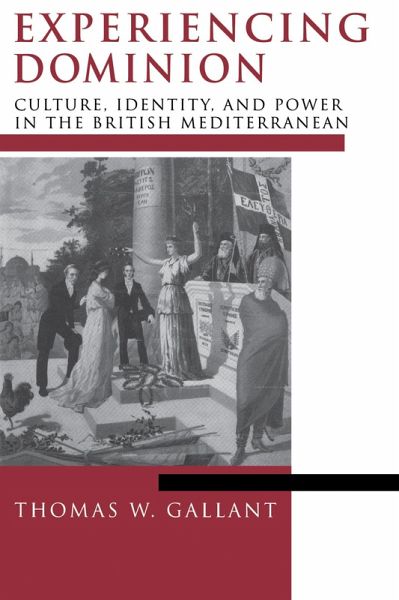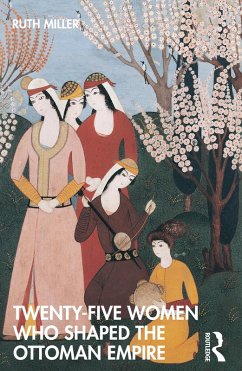
Experiencing Dominion (eBook, ePUB)
Culture, Identity, and Power in the British Mediterranean
Versandkostenfrei!
Sofort per Download lieferbar
17,95 €
inkl. MwSt.
Weitere Ausgaben:

PAYBACK Punkte
9 °P sammeln!
Experiencing Dominion contributes to ongoing debates on hegemony, power, and identity in contemporary historical and anthropological literature through an examination of the imperial encounter between the British and the Greeks of the Ionian Islands during the nineteenth century. Each chapter focuses on a different aspect of the imperial encounter, with topics including identity construction, the contestation over civil society, gender and the manipulation of public space, hegemony and accommodation, the role of law and of the institutions of criminal justice, and religion and imperial dominio...
Experiencing Dominion contributes to ongoing debates on hegemony, power, and identity in contemporary historical and anthropological literature through an examination of the imperial encounter between the British and the Greeks of the Ionian Islands during the nineteenth century. Each chapter focuses on a different aspect of the imperial encounter, with topics including identity construction, the contestation over civil society, gender and the manipulation of public space, hegemony and accommodation, the role of law and of the institutions of criminal justice, and religion and imperial dominion.
Thomas Gallant-widely recognized as one of the leading scholars in historical anthropology- argues that a great deal can be learned about colonialism in general through an analysis of the Ionian Islands, precisely because that colonial encounter was so atypical. For example, Gallant demonstrates that because the Ionian Greeks were racially white, Christian, and descendents of Europe's classical forebears, the process of colonial identity formation was more ambiguous and complex than elsewhere in the Empire where physical and cultural distinctions were more obvious. Colonial officers finally decided the Ionian Greeks were "Mediterranean Irish" who should be treated like European savages.
Experiencing Dominion pushes contemporary literature on historical anthropology in a new direction by moving the discussion away from an emphasis on a simple polarity between hegemony and resistance, and instead focusing on the shared interactions between colonizers and colonized, rulers and ruled, foreigners and locals. In this important study, Gallant emphasizes contingency and historical agency, examines intentionality, and explores the processes of accommodation and, when warranted, resistance. In so doing, he reconstructs the world Britons and Greeks made together on the Ionian Islands during the nineteenth century through their shared experience of dominion.
Thomas Gallant-widely recognized as one of the leading scholars in historical anthropology- argues that a great deal can be learned about colonialism in general through an analysis of the Ionian Islands, precisely because that colonial encounter was so atypical. For example, Gallant demonstrates that because the Ionian Greeks were racially white, Christian, and descendents of Europe's classical forebears, the process of colonial identity formation was more ambiguous and complex than elsewhere in the Empire where physical and cultural distinctions were more obvious. Colonial officers finally decided the Ionian Greeks were "Mediterranean Irish" who should be treated like European savages.
Experiencing Dominion pushes contemporary literature on historical anthropology in a new direction by moving the discussion away from an emphasis on a simple polarity between hegemony and resistance, and instead focusing on the shared interactions between colonizers and colonized, rulers and ruled, foreigners and locals. In this important study, Gallant emphasizes contingency and historical agency, examines intentionality, and explores the processes of accommodation and, when warranted, resistance. In so doing, he reconstructs the world Britons and Greeks made together on the Ionian Islands during the nineteenth century through their shared experience of dominion.
Dieser Download kann aus rechtlichen Gründen nur mit Rechnungsadresse in A, D ausgeliefert werden.













